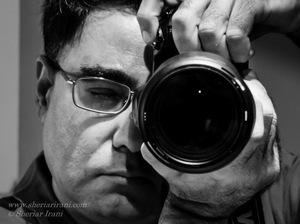 Know thy photography equipment
Know thy photography equipment I have approached this from two perspectives
- from a buyer's and
- from a user's (while citing here how my own experience once saved my backside!).
This part 1 of my write-up looks at the buyer's perspective.
Every manufacturer claims that their product is the "best", "highest quality", "value-for-money", "latest cutting-edge technology", etc., etc., .... basically God's-gift-to-mankind. So, if you go by these claims Every product is the Best ... kind of a contradiction isn't it? It reminds me of my son when he was 3 years old ... He would come over to me after playing with his dinky cars and say "Dad I raced my 12 cars today, and All of them came First"! (LOL).
So, unable to determine the "God's-gift-to-You" product, you turn to "reviews". Now these can be equally confusing as a majority are positive! Many don't want to rub the manufacturer the wrong way, especially those reviewers who also sell them (or other products by the same manufacturer). The way around it is to look for "clues" in the write-up; read between the lines. For example, if the review says "while XYZ is an overall good performer readers particular about lens sharpness may also wan't to look at product ABC". In other words, lens sharpness is a weak point of the camera or lens under review.
Then there will also be personal biases that can strongly influence reviews; after all it's someone's point-of-view (however "objective" the reviewer may strive to be) ... that's human nature. So, in my experience, the best way around it is to go through a number of reviews before you decide for yourself. And over time you will realise which reviews to trust over others. Also, you will find that some give better technical details (and leave you to draw your conclusions ... if you choose to be geeky enough like me), while others have stronger opinions but which you may find carry weight consistently across their reviews.
The third, and the most useful in my experience, is to read User reviews. They often have more truth in them than the other two options above, as they are real-life experiences of the product users. The downside to this exercise is it's more time-consuming. But to my mind it's worth it.
And the fourth, lazy-way-out, option is to ask someone who knows. While not all of us have that luxury, it is as useful as the third (user reviews). And if you are not lucky enough to know an experienced photographer or dealer personally, there are many forums like Flickr where you will find very helpful people.
Conclusion - there is no quick fix, but delving deeper helps
There is no free lunch; so you have to do your homework. But in my view a combination of the last two - user reviews and asking an experienced photographer - work the best. And sorry but the topic of photography is jargon oriented, so one has to expect a lot of that.
A side note: First determine what's important to You
Decide what features of a camera, lens or accessory matter to you the most. Is it lens sharpness, or ISO, or the zoom range, or flash power, or ease-of-use, or ...? Then decide on what is right for you. Do Not, I repeat, do Not, expect to find everything in the same product ... "all my cars" cannot "come 1st!" ... even though most manufacturers might want you to think so. Every product will excel in some features; whether they matter to you ... only you can decide.
And naturally, you get what you pay for (most of the time). So don't expect a lower-priced product do all that a higher priced one can. It's a different story that you may perceive the higher price as not worth premium, or your budget may not permit you to.
Any which way, all the best with you purchases!
 RSS Feed
RSS Feed